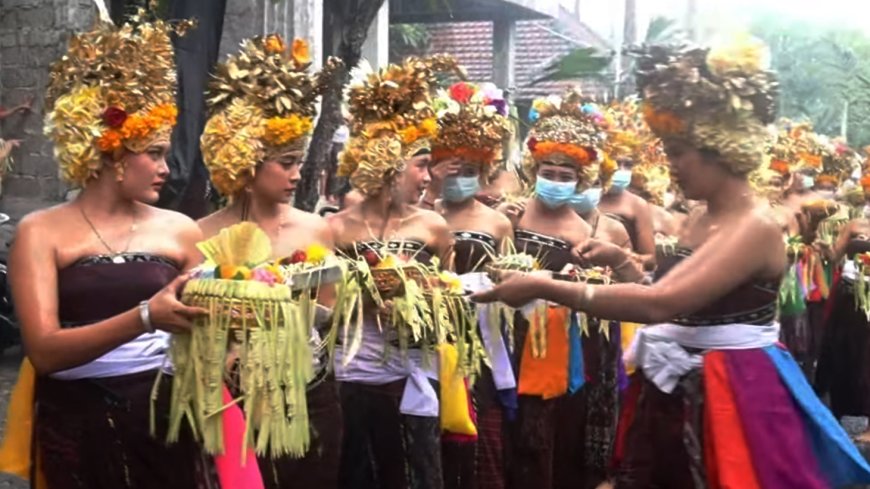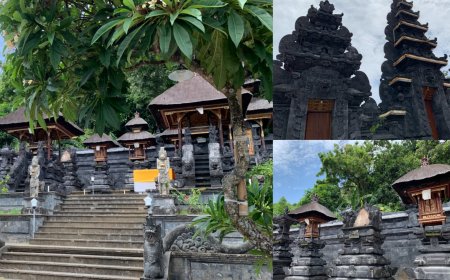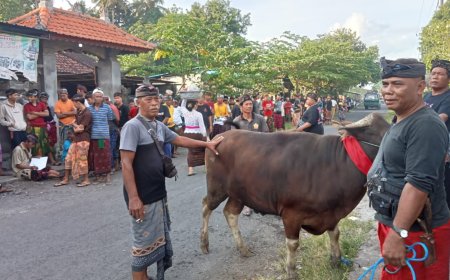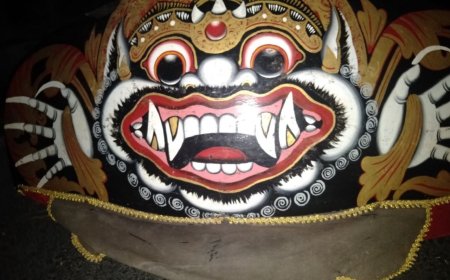Aci Manda and Nyepi Desa Bugbug: A Prayer Amid the Ripple of Waves and the Silent Mountain
Bugbug Village in Karangasem, Bali, is known for its sacred traditions that blend spirituality with the daily lives of its people. Two main rituals, Aci Manda and Nyepi Desa, serve as expressions of gratitude and reflection, strengthening the connection between humans, nature, and ancestors. Through these rituals, the people of Bugbug maintain a balance in life and harmony with their surrounding environment.

Bugbug Village, located in Karangasem Regency, Bali, is a place where culture and spirituality interact in beautiful harmony. Here, two sacred traditions, Aci Manda and Nyepi, are integral parts of the community's life. They are not merely rituals but also prayers connecting humans with nature and ancestors. In every pulse of life in Bugbug, there are calming waves and a silent mountain, preserving sacred stories that continue to live.
Aci Manda is a traditional ceremony performed as an expression of gratitude and a plea for safety to the gods and ancestors. The people of Bugbug conduct this ritual with deep reverence, involving offerings, dance, and prayers. Every element in this ceremony has profound meaning, reflecting the close relationship between humans, nature, and spirituality. Through Aci Manda, the people of Bugbug not only honor their ancestors but also invite them to help maintain the balance of nature, which is increasingly threatened by modernization.

The People of Bugbug Village Perform the Aci Manda Ceremony (Source: Private Collection)
On the other hand, Nyepi is a day of silence when the people of Bugbug cease all activities for reflection and meditation. Nyepi Desa takes place after the Galungan and Kuningan celebrations, when a peaceful atmosphere envelops the village. All activities stop, no vehicles pass by, and silence fills the environment. Nyepi is a time for the Bugbug community to reflect on their life's journey and pray for peace, both for themselves and their surroundings.
These two traditions, Aci Manda and Nyepi, complement each other in creating peace and harmony. Aci Manda provides meaning and purpose in strengthening ties with the ancestors, while Nyepi offers an opportunity to reflect on the meaning of life. Behind the waves crashing on the shore, prayers are spoken to seek protection and blessings from the Almighty.
Through Aci Manda, the people of Bugbug believe that they gain strength from the ancestors and deities they worship. Every offering is an expression of love and respect, a bridge connecting the physical and spiritual worlds. This ceremony serves as a means to cleanse oneself of negative elements and strengthen the intention to preserve nature.
The People of Bugbug Village Perform a Prayer Ceremony (Source: Private Collection)
Conversely, Nyepi is a time for introspection. In silence, the people of Bugbug reflect on their life's journey, realizing that every action has consequences. Nyepi reminds them to maintain balance between human life and nature. In this tranquility, the sound of waves and the silence of the mountains stand as silent witnesses to their spiritual journey.
Aci Manda and Nyepi are manifestations of local wisdom that is preserved and passed down from generation to generation. These two traditions teach important values of respect, awareness, and harmony. Amid the growing flow of globalization, the people of Bugbug hold firmly to their cultural roots, showing that ancestral heritage is an invaluable source of strength.
In closing, Aci Manda and Nyepi are more than just traditions. They are prayers resonating between the waves and the silent mountain, reminding us all of the importance of maintaining connections with nature, ancestors, and ourselves. In Bugbug Village, every step, every sound, and every moment of silence becomes part of an unforgettable spiritual journey that creates harmony amid a constantly changing life.





























































